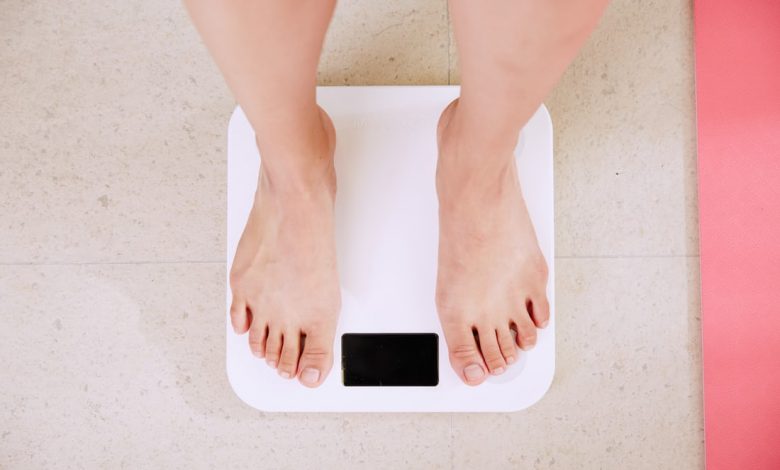
Preventing Childhood Obesity and Reducing Its Risk Factors: What you Need to Know
For many parents, preventing childhood obesity is a top priority, as it continues to be a big menace in our society. Reports indicate that about 21-24% of children in the US are overweight, while 16-18% of them are suffering from obesity.
Usually, children tend to develop fewer health and medical conditions from excessive weight gain. However, children suffering from excessive weight gain can grow up to become obese adults, thus putting them at risk of developing some constantly recurring diseases like diabetes and heart disease. These diseases are not only life-threatening, but can also instill fear, stress, sadness, and low self-confidence in your kids.
Since most children do not have a say in what they eat or drink, the responsibility lies on the parents to ensure they eat healthy and nutritious meals to prevent obesity and guard against excessive weight gain. When you monitor and control their food intake, you can limit their calorie consumption and put their weight in check.
Additionally, as a parent, you have to combat some environmental factors and lifestyle preferences that can bring about excessive weight gain and obesity in your kids.
As we proceed, we aim to cover the best preventive measures that you can take in preventing childhood obesity and nipping excessive weight gain in the bud.
Preventing Childhood Obesity: Why Prevention is Better than Cure
Obesity is a global epidemic that must be curtailed and prevented as early as possible. But before we dig deep into the preventive measures and strategies for excessive weight gain in little children, what exactly is obesity? And how does it happen? Find out below.

Obesity is an abnormal accumulation of fat in a way that causes excessive weight gain and poses a risk to your health. Most times, it occurs as a result of an abnormal balance of energy between ingested calories and expended calories. That is when you eat more calories than you need, and you don’t engage in any exercise or other physical activities that will help burn those excess calories, your body will store them as fat, and obesity can set in from there.
There have been several attempts in the human’s quest to combat obesity and control excessive weight gain. Until recently, most of these attempts have been based on dietary changes, physical activities, and behavioral patterns of the concerned people.
Sadly, these attempts have not been able to yield much positive results, as obesity continues to be on the rise. This is mainly due to the difficulty involved in fighting a fully blown obesity epidemic in adults. That is what made most researchers conclude that prevention is the most effective way of dealing with the obesity epidemic.
As a parent, there are several ways you can combat obesity and control excessive weight gain in your kids.
Ensure Adequate Provision of Nutritious Diets
As a parent, it is your duty to provide your little ones with healthy and nutritious meals that will help them grow and develop. You can adopt a nutritious meal plan that consists of low-fat and low-calories to keep their weight in check and prevent obesity. Moreover, you can also educate them about the importance of eating balanced diets with a variety of nutrient-rich meals like whole grains, fruits and vegetables, dairy, legumes, and lean meats.

Fruits and vegetables will supply the body with essential minerals and nutrients required for an overall healthy lifestyle. You can encourage your kids to eat fruits and vegetables very often to grow and develop without any side effects. For optimal results, you can include some nutritious low-calorie fruits and vegetables.
Encourage Less Sugar Intake
Generally, children love to eat sweetened foods a lot, no thanks to parents who have developed the habit of making sugary meals readily available for them. Sugar is good for energy, but an excess of it can lead to the accumulation of unhealthy fat, which will attract some chronic disease. There is a need to reduce the rate at which your kids consume sugary and other highly-processed foods.
Measure Their Meals to Prevent Overeating
As you are watching your weight, it is important that you watch your children’s weight as well, if you don’t want them to end up adding excessive weight.
As one of the leading causes of obesity among children, overeating can cause excess fat to accumulate in the body, which can later lead to being overweight if not curtailed immediately.
Some parents allow their children to eat every meal to their stomach capacity. However, when you use this hand to bring up your children, they will become obese with time. To prevent this, measure your meals on a plate before serving, and ensure that the foods can sustain them until the next meal.
Set Good Examples

Kids have no idea what is good for them and what is not. And there is no way they can understand the impact and effect of consuming excess calories unless you tell them. Even if you tell them, they can be easily lured by their friends and colleagues since they don’t actually know how it works. However, if you practice what you preach, they can easily grasp the idea behind healthy eating habits and cut back on toxic foods.
Your children are always looking up to you, so be a good role model. Since they will most likely emulate and pick up your eating and drinking habits, you can adopt an eating plan that will encourage them to eat healthy foods always.
Turn off the TV While Eating
According to a study, children who spend a lot of time in front of the TV, especially when eating, are more likely to gain weight than kids who don’t. Your children will most likely be captivated by their favorite TV shows. At this point, it is very easy for them to overeat and exceed their standard daily food ratio. To prevent this, you can turn off the TV while eating and encourage them to focus on their food during meal times.



